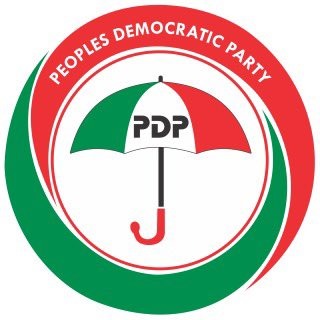The Nigerian political landscape is witnessing a wave of defections from opposition parties, primarily the Peoples Democratic Party (PDP) and the New Nigeria Peoples Party (NNPP), to the ruling All Progressives Congress (APC). This exodus has raised concerns about the potential misuse of anti-corruption agencies, namely the Economic and Financial Crimes Commission (EFCC) and the Independent Corrupt Practices and other Related Offences Commission (ICPC), as political tools to coerce opposition members into joining the APC. The PDP and NNPP have issued stern warnings against this practice, highlighting the dangers it poses to Nigeria’s democracy. While the APC attributes the defections to President Tinubu’s reforms and popularity, the opposition parties allege a more sinister motive.
The PDP, through its National Publicity Secretary, Debo Ologunagba, has accused the Tinubu administration of weaponizing anti-corruption agencies to intimidate and pressure opposition figures. Ologunagba argues that this tactic undermines the integrity of these institutions, which are meant to operate independently and uphold the rule of law. He emphasizes the need for Nigerians to speak out against this perceived abuse of power, warning that it represents a clear and present danger to democracy. The PDP’s stance reflects a growing concern that the fight against corruption is being politicized, with the ruling party allegedly using it as a lever to weaken the opposition.
The NNPP echoes the PDP’s concerns, cautioning against the potential repercussions of using anti-graft agencies for political gain. Oladipo Johnson, the NNPP’s National Publicity Secretary, warns that such actions could have unforeseen consequences. He expresses worry that the leadership of these agencies appears to prioritize loyalty to the President over adherence to the Constitution and the laws of the land. Johnson’s remarks highlight a fundamental challenge in Nigeria’s political system: the tendency for institutions to be beholden to individuals rather than to the principles of impartiality and the rule of law.
The defections to the APC have been significant, involving high-profile figures such as the governors of Delta and Akwa Ibom states, along with numerous lawmakers and party officials. These defections have fueled speculation that the anti-corruption agencies are being used to pressure opposition figures into switching allegiance. The APC’s explanation, attributing the defections to President Tinubu’s popularity and successful reforms, has been met with skepticism by the opposition. The timing of the defections, often following investigations or accusations of corruption, lends credence to the opposition’s claims.
The central issue at stake is the integrity of Nigeria’s anti-corruption fight and the independence of its institutions. The opposition parties argue that the current administration is undermining these principles by using anti-corruption agencies as political weapons. They warn that this practice not only weakens the opposition but also erodes public trust in the government’s commitment to fighting corruption. The opposition’s call for Nigerians to speak out reflects the importance of maintaining the integrity of democratic institutions and upholding the rule of law.
The allegations against the Tinubu administration raise serious questions about the future of Nigeria’s democracy. If anti-corruption agencies are indeed being used to suppress political dissent, it could have a chilling effect on freedom of expression and association. The opposition’s warnings should be taken seriously, and there is a need for greater transparency and accountability in the operations of these agencies. The future of Nigeria’s democracy depends on ensuring that institutions remain independent and impartial, serving the interests of the nation rather than the political ambitions of any particular party or individual.


